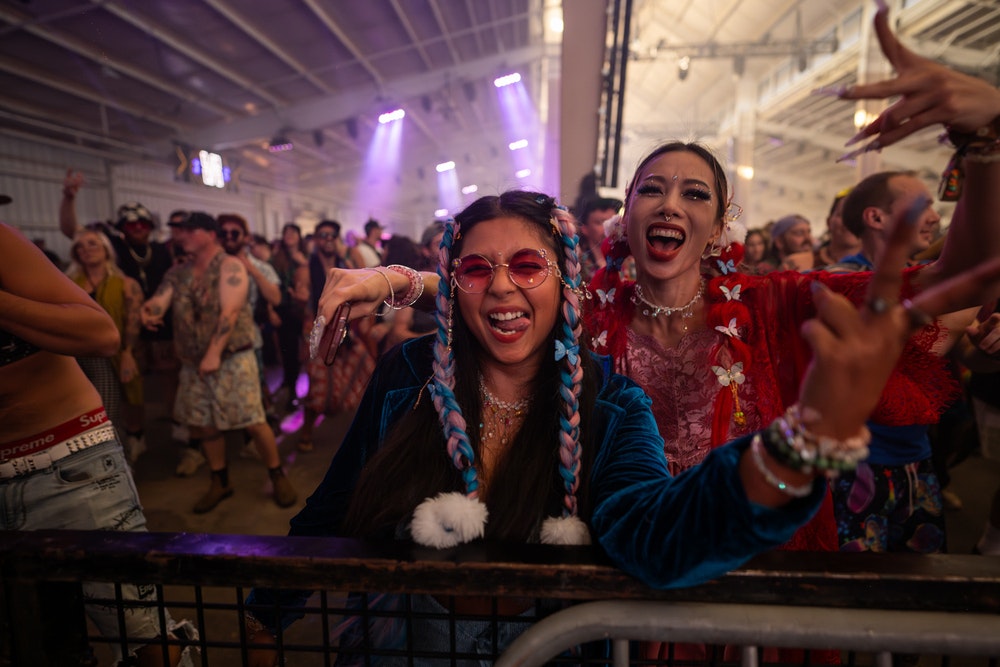
■ Features
We spoke to the teams behind 5 grassroots festivals in the U.S. to find out what they’re actually looking for when they’re booking new acts.
Landing a performance slot at your favorite festival might be easier than you think—sometimes, it’s just a matter of reaching out.
To shed light on the process, we interviewed curators from some of the U.S.'s most celebrated grassroots festivals: Michael Berg, Co-Founder of Hulaween in Florida; Barnett English, Founder of the Joshua Tree Music Festival in California; Josh Pollack, Talent Buyer for Cascade Equinox in Oregon and Gem & Jam in Arizona; and Mikey Made, Founder of Off The Grid Campout in Southern California—here’s what they’re looking for in new acts.
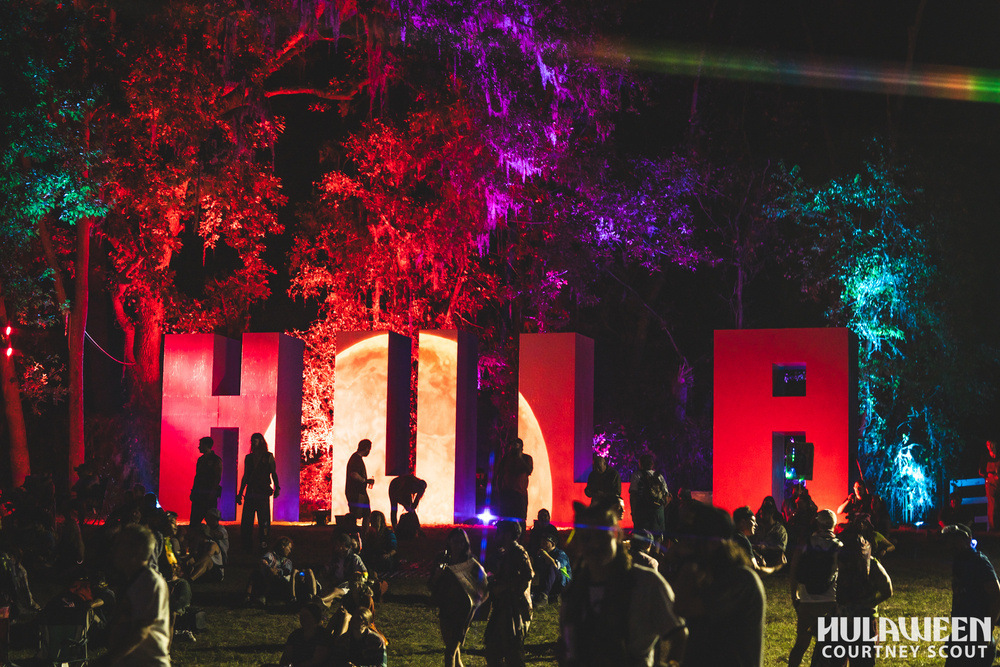
When it comes to top tips, Michael Berg emphasizes community-building:
“Play shows locally and regionally to build up your community in the region where the event takes place.”
According to Berg, this is the best way to get noticed by fans and earn a spot in local festival lineups. Josh Pollack echoes this, encouraging artists to focus on performing and building connections:
“Hustle! Get your live show to a place where you can perform confidently and flawlessly. Play as many local shows as possible—get in front of people and deliver an excellent performance. Once that happens, a community will start to build, and you’ll get noticed by local venues, which will undoubtedly lead to getting noticed by local festivals.”
Barnett English urges artists to stay authentic:
“Make the music that you are inspired to create, not what you think people want to hear. Own that s***!”
For him, authenticity resonates with both audiences and festival organizers. And when it comes to getting noticed, Mikey Made encourages new acts to be bold:
“Reach out to us via social, email, etc. — or, best yet, come to an event and shoot the s*** with us in person. That’s always the best way!”
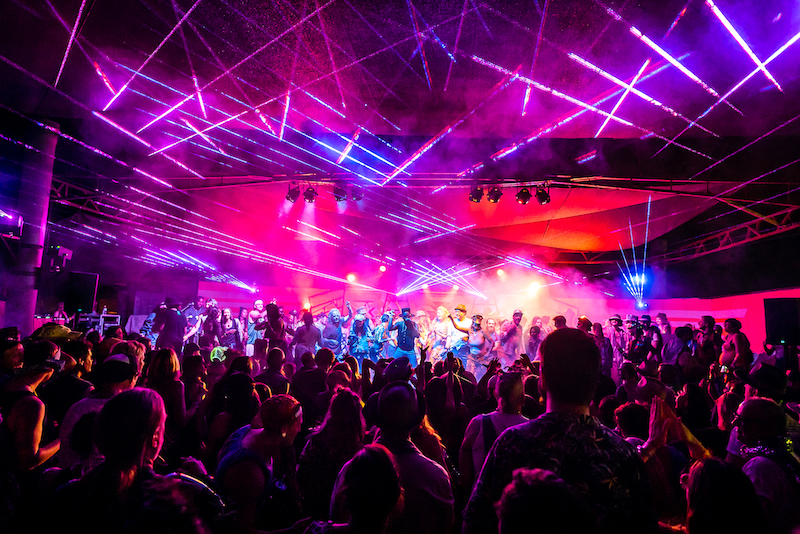
Michael Berg notes that booking timelines vary depending on your status:
“Some headliners are booking two or more years out. The undercard acts come later; you don’t want to be searching for a headliner after you’ve booked the undercard. Top-down booking makes for the best curated events.”
However, even as an undercard act, while your slot might be confirmed later, Barnett English says any time is a good time to connect with a festival:
“Some festival organizers only want to hear from artists during a certain window, but I'm constantly listening to new music, watching live performances, and adding to my lists of bands and artists that I'd love to have perform here in Joshua Tree. For me, submit your info any day of the year. That said, I'm sending out offers 12 months in advance to international artists and nine months in advance to U.S. artists.”
Josh Pollack encourages early and persistent outreach:
“Start as early as possible and be persistent! Set reminders to check in with programmers every two weeks.”
Mikey Made agrees:
“Sooner is better. And don’t be afraid to reach back out!”
When it comes to what you reach out with, Berg suggests, “As little as possible.” He continues:
“Include links to music, videos, and key stats or relevant news items, as well as who your backing team consists of.”
English, too, prefers conciseness but also highlights the importance of performance videos:
“Just send a short (300 words or less) bio that describes your music, how it makes you and others feel, and what inspired it. I want to see two or three unedited live performance videos. The quality matters, but it can literally be a friend filming on their phone. Sizzle reels or MTV-style videos won’t help if I’ve never seen you play live.”
Pollack underscores professionalism:
“Include a succinct, professional EPK, music links, and most importantly, your history of playing shows in that region. Demonstrating that you’ve headlined shows in the area with ticket sales data improves your chances.”
And Mikey Made adds:
“Send EPKs, a personalized message, and links to relevant projects or releases. And don’t be afraid to reach back out!”
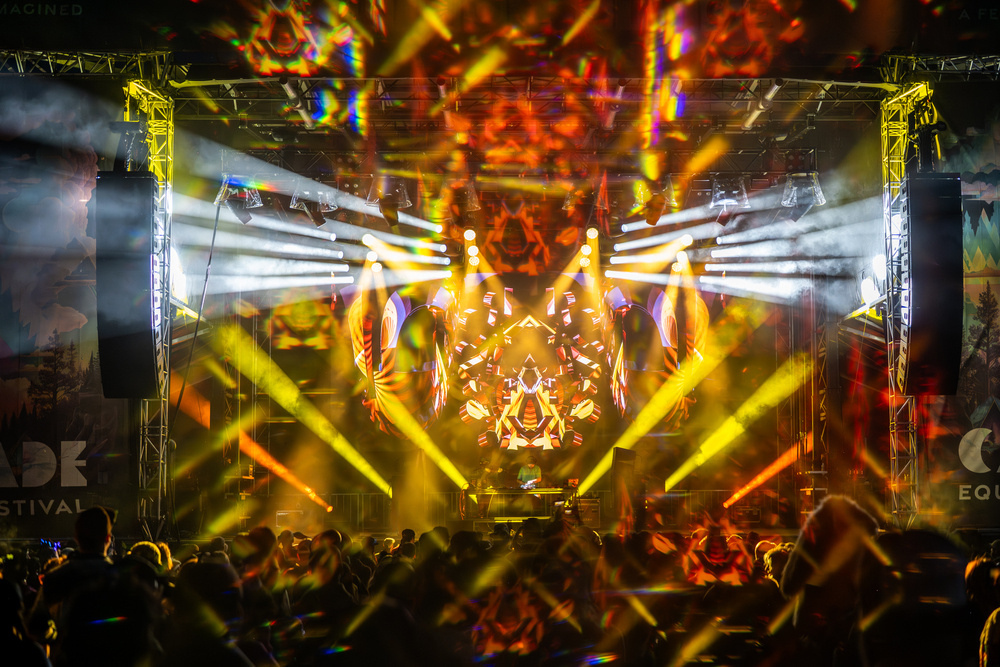
Mikey Made believes that while music is the priority, social media is also essential:
“Music is always the top priority, but it’s super important that artists have an active social media presence.”
Pollack agrees, saying that social media is “very important,” but notes that ticket sales are even more crucial. Berg also places previous ticket sales above social media presence in order of importance:
“While sales history is the most vital data point, social media and online presence does matter. It doesn't always equate to ticket sales but it is absolutely important—as are streaming numbers. When searching for artist partners who can charge up your festival community and fanbase, or help resolve some billing debates, these metrics all play a role.”
English views social media a bit differently:
“That's an afterthought for me. If I see a wildly talented artist or band, I'll book them regardless of their socials. Yes, it helps if a band has an active social presence and a fanbase they can reach out to, but we've been booking 'up-and-coming' artists for so long that our attendees rarely know any of the artists on the bill. So, your socials aren’t reaching them. Conversely, you can look at festival lineups and see which ones lean heavily on booking those with a large social presence..."
All the festival organizers agree that performance experience is one of the most critical factors when booking acts. Michael Berg explains:
“We always aim to book a show that we’d want to attend, while also considering the community we’re serving or curating for. Sometimes it’s a set or performance we’ve seen elsewhere that we know would resonate, or it’s an act that has had success at other like-minded events across the country or world. Balancing those elements with creating a unique experience only available at 'xxx' fest is the real challenge we love to tackle.”
Pollack adds:
“The more festival experience an artist has, the more it proves they have what it takes to play a festival and deliver a special performance to the crowd.”
English weighs in:
“An artist is more likely to put on a great live show if they’ve performed frequently. I can look at an artist's past shows and learn a lot about them just by seeing where they’ve played. It’s just one of the factors that go into making a decision on an artist.”
Mikey Made also agrees but notes the importance of releasing music regularly:
“Both are major considerations, but I also personally look at how active the artists are with their releases, mixes, etc…”
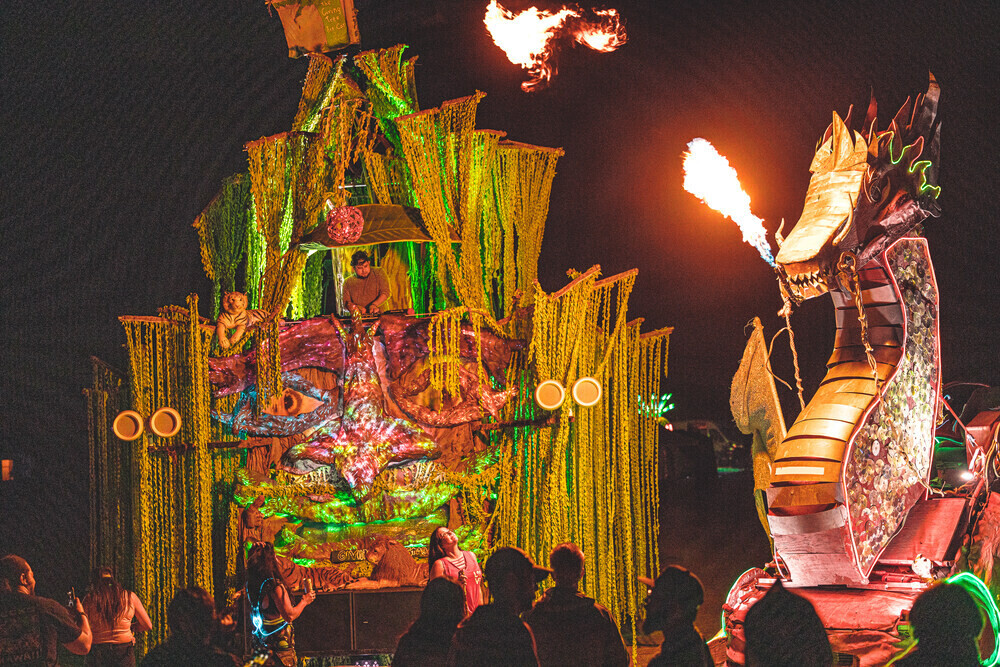
Common pitfalls when reaching out to festival organizers are easily avoided when you know what they are. English advises against sending information without live performance videos:
“Sending info that has no links to videos of a live performance is a mistake.”
Meanwhile, Berg warns against over-pitching:
“Over-pitching or sending a long, wordy email. Also, not trusting the process and expecting certain things before they’re ready. We don’t hate ambition at all, but it’s not going to fall in your lap if you don’t try and go for it.”
Pollack emphasizes the importance of building a local buzz before trying to catch the attention of festivals:
“Trying to get booked on a festival before you’ve created a buzz in your local music community.”
For Made, it’s about attitude. His advice?
“Entitled” acts are the worst to work with.”
So, how does it actually happen? For Pollack, at his festivals Cascade Equinox and Gem & Jam, they use a competition format to open opportunities as widely as possible:
“We always have contests where folks submit their unique mixes, and one lucky winner gets a slot at the festival. There have also been situations where we booked an artist on our local stage, billed at the bottom of the lineup, who later went on to achieve national success and returned years later as a top-tier headliner.”
For others, it’s often a more ad-hoc process. Berg recounts how artists have worked their way up the lineup at Hulaween:
“After years of showcasing up-and-comers at Hulaween, some grew to become headliners. We’ve had fans question an act on the lineup one year, only to demand their return the next. In fact, the Hula community (through a crowdsourcing social post) turned me onto Franc Moody, who we’ve now booked at multiple venues and festivals across state lines. To this day, they remain one of my favorite and greatest live bands on the planet.”
English notes that sometimes, artists can’t believe how straightforward the process is:
“This has happened dozens of times over the past 21 years (and 41 festivals booked). I get an email from an artist, love what I see and hear, and send them an offer within moments. Often, folks are so surprised, they ask, ‘That’s it? We’re in?!’ It can be that easy. You just never know. So keep doing what you love, and don’t be afraid to reach out to festivals, promoters, and agents.”
Made concludes:
“We’ve had tons of artists show up to an event, show support, and then find themselves on the lineup for the next event!”
Once you start landing festival bookings, it gets easier each year. But for now, it’s never too early to start preparing your pitch. Just remember, the right festival slot could be just an email away. For even more tips, check out Pirate’s guide to the best festival opportunities to apply to in 2025.
